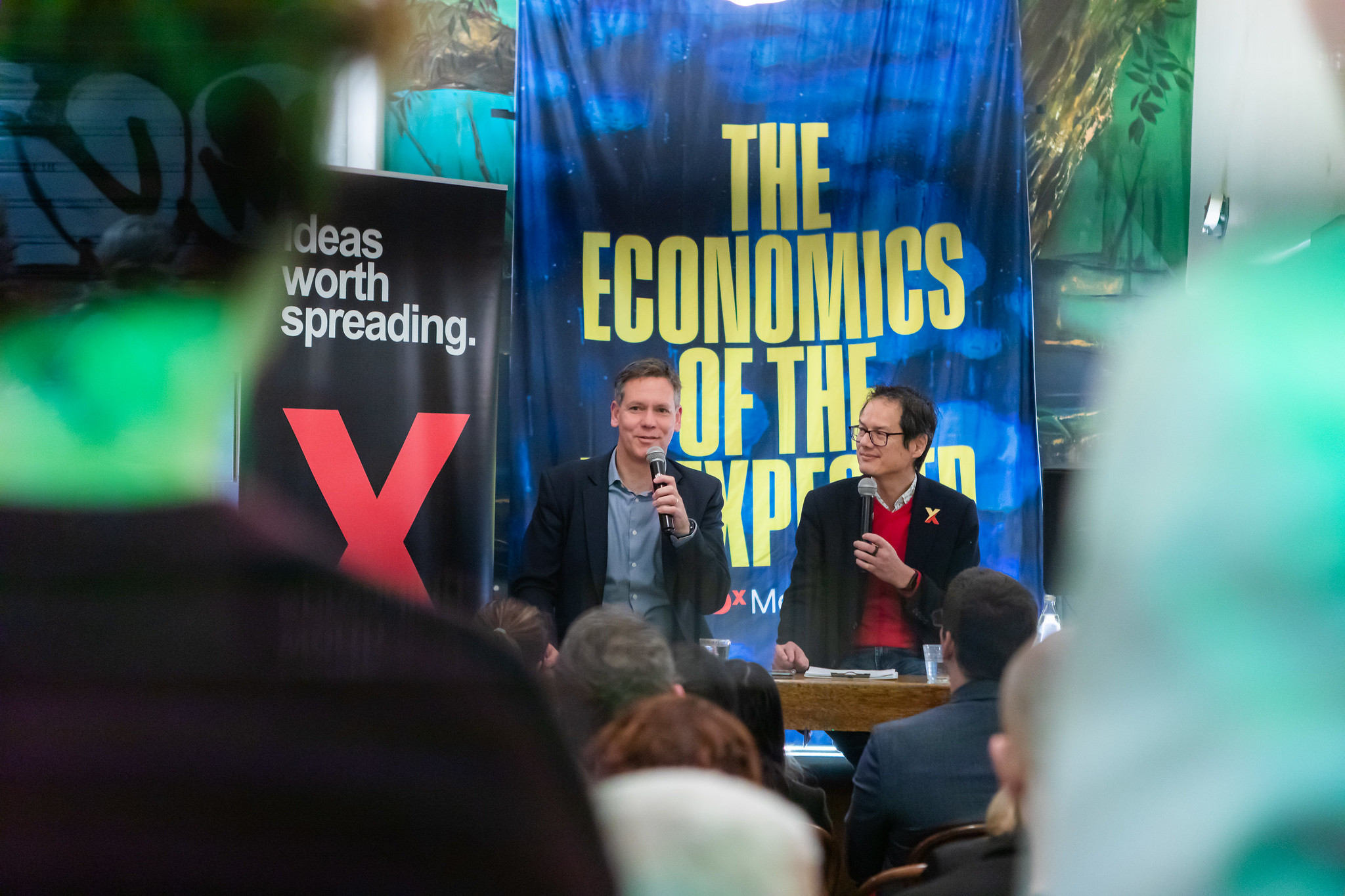
In a world where disruption is the norm and the future no longer resembles the average of the past, how do cities like Melbourne prepare and thrive?
Economist Andrew Wear provided his perspectives on this very challenge at our most recent TEDxMelbourne event, "The Economics of Unexpected."
The biggest takeaway? We are now in an era where expecting disruption is normal, regular, and consistent – it's our new operating model.
So how does a city like Melbourne truly build resilience and thrive? Wear explored a series of intangible, yet critical, elements to focus on.
For generations, our economic systems were built on one central assumption: the future will more or less resemble the past. But today, that assumption is broken.
What replaces it? A model that assumes radical uncertainty, where flexibility is designed into how we govern, how we invest and how we adapt. As Andrew Wear reminded us, “We can no longer afford to model a future that looks like the average of the past.”
The pandemic showed us we can’t anticipate every possible disruption. But Wear says we can build tolerance for them — designing systems with slack, responsiveness and pre-emptive capability.
Resilience is often framed as “bouncing back.” But true resilience is more than recovery: it means growing stronger — more agile, more inclusive — because of the shock, not in spite of it.
During the pandemic, Melbourne showed its ability to experiment quickly: fast-tracking outdoor dining, trialling street activations, learning by doing. Not every move worked, but that wasn’t the point. What mattered was our willingness to try, before certainty arrived.
Resilience, in this new age, means building capability in advance, but also shifting mindsets, networks and trust.
You can’t fund trust through a line item in a budget, but everything runs on it. From financial systems to emergency responses, trust accelerates action. Without it, progress slows. With it, societies cohere.
Nordic countries, high in trust, fared better in crisis — not because of tougher rules, but because people trusted each other and their institutions. In contrast, low-trust environments like Australia demand enforcement, surveillance, friction.
Wear emphasised that rebuilding trust in Melbourne between citizens, government, and institutions is the foundation of every future-ready decision we’ll make.
Here’s what we do know: the world is heading to net zero by 2050. Capital — trillions of dollars — is shifting rapidly into environmental solutions like climate tech.
So how do we move first?
We can’t wait for clarity before we act. We need to nurture ecosystems — climate tech, medtech, sports tech, edtech — not once they’re obvious, but while they’re still fragile. Melbourne already excels in research, education, events, live music and healthcare. We can lead in the technologies that sit adjacent to them, if we choose to.
And yes, we will fail. But as Wear put it simply: more shots on goal mean more wins.
Melbourne’s diversity is one of its greatest strengths, but only if we activate it.
Migrants are more likely to start businesses. Yet access to venture capital, accelerator programs and networks remains uneven. If we unlock that entrepreneurial potential, we have the opportunity to grow a city that is fairer, and more economically strong.
There’s clear evidence from the OECD and World Bank: reducing inequality drives economic growth. It’s not charity. It’s strategy.
During the pandemic, many predicted the death of cities. But Melbourne and many cities around the world proved them wrong. Today, the city is more vibrant than ever. People want to be here for opportunity, connection and energy.
But we face real challenges. Housing is one. If people can’t afford to live in the city, its future becomes inaccessible. We need new models — ones that balance development with inclusion, investment with liveability.
We also need to ensure our precincts — from Cremorne’s tech scene to Clayton’s innovation corridor and Parkville’s biotech hub — are firing in tandem. Investment in infrastructure is critical, and underway, but Melbourne’s leaders need to unite in their vision, networks and intent.
Melbourne is already on the map. The question now is: who do we want to become?
We have the ingredients — talent, trust, diversity, creativity. What we need is the courage to move early, try often, and grow forward. Not by accident. But by design.
Join Us on September 24
TEDxMelbourne returns to ask the big questions that matter.
Our next event: Beyond the Horizon, encourages you to step back from the daily noise, question the systems we've inherited and hear directly from those who are already building what's coming.
Each curated talk will offer a unique perspective into what the next 10, 20, or even 50 years could look like. Discover how the choices we make today are actively shaping that future.
This isn’t just an event. It’s an invitation to help shape what’s coming.
Secure your seat. The future won’t wait. Subscribe to our mailing list to secure your spot.

Our 3rd annual Open Mic Night in the heart of Melbourne.
.png)
From the fun to the functional, how is AI making our world better?

Many of the events and interactions that we habitually weave into the everyday – dinners with family, drinks with friends, coffees with colleagues – have undergone a digital makeover.